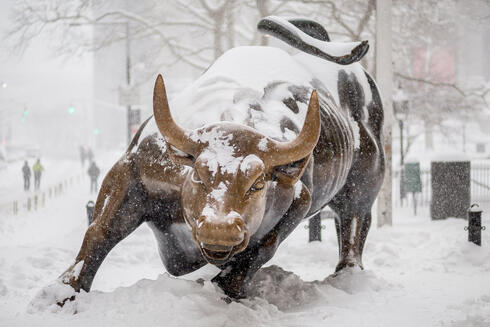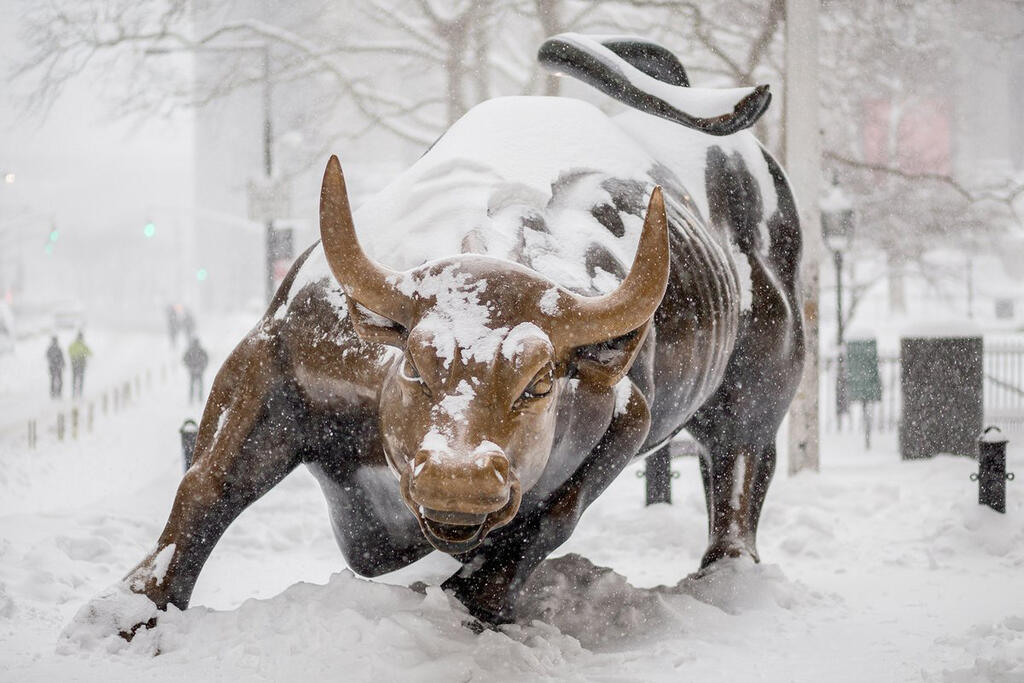
"If I don't show a return similar to that of the S&P 500, the client will kill me"
Has the S&P 500 become too dominant? Despite the index rising by about 25% in 2023, the public continues to pour tens of billions into ETFs tracking the index that follows the stock performance of 500 of the largest companies listed on US stock exchanges
Does the party sometimes never end? If you ask the investing public, the answer may be "yes." In the last week, the public invested about $35 billion into the world's largest exchange-traded fund (ETF), SPDR, which trades under the symbol SPY and tracks the S&P 500 index. Last Friday, $20.8 billion flowed into the ETF, marking the largest daily deposit in its history.
Since the beginning of the year, the public has invested $44.7 billion into the ETF, with 80% of the deposits in 2023 taking place in the last week. This influx occurs despite the S&P 500 index rising by about 25% in 2023. The public believes the celebration will continue, influenced by the Federal Reserve's statement last week that interest rates will begin to decrease next year. When interest rates go down or are expected to decrease, the attractiveness of shares increases. SPY, managing $480 billion in assets, is not only the world's largest ETF but also the one that pioneered the entire ETF industry.
It was born in January 1993, following Black Monday, October 19, 1987, when the world's stock markets crashed. Following the event, the US Securities and Exchange Commission (SEC) realized that there was no security that broadly reflected the market, and that the existence of such a product could have softened the shock. Five years later SPY was launched.
According to Yuval Eisenberg, CEO of the investment house MS Rok, the jump in the index in recent weeks is due to several factors. According to him: "There is more money in the world. This makes young people enter the game and they take higher risks than the previous generation. Access to the stock market has also increased significantly following technological development. All of these push the market forward, even in times of uncertainty. But you have to remember that investment management is risk management and strategy."
Eisenberg criticizes the almost automatic flow of investors' money into the index. "If we behave like sheep in the pasture, it's dangerous. Investing in the index is actually investing in a channel that is 100% stocks, and people forget that. There are many people who refer to the index as safe stocks or who think that the index historically rises 9% per year and this will happen every year.
"We have to be careful about this. The S&P 500 also knows how to go down. The index reminds us of this every few years, during wars or epidemic outbreaks. Sometimes we don't even need drama. At the end of 2018, nothing special happened in the world and the index dropped 15% in three weeks." Eisenberg adds that one must manage risks and understand what they are investing in. "Warren Buffett said many times that it is better to invest in the market through indices, but people forget that he himself is an investment manager. It is healthy to have indices, but it is important to have managers as well."
David Botbol, chief investment officer at Clarity Capital, explains that the main reason for the increase in the index is "the expectation of a lower interest rate than we assumed a month ago. The market has felt in the last month that the Fed is no longer so hawkish. A week ago Jerome Powell said that There could be 3-4 interest rate cuts next year. This made all the stocks in the market fly and they aren’t stopping. This makes me happy as an investment manager."
Botbol claims that the popularity of the index is changing the way investment managers manage risk. According to him, "If I don't show a return similar to that of the S&P 500, I'm in trouble. Every investor who looks at the market, first of all looks at the index. It has become so dominant in people's minds, that's why I have to invest in the index and in a significant way. For months, all the clients said to me, 'Why don't I hold the S&P 500?'. The client forgives me if my portfolio goes down when the index goes down, but if the index goes up and I don't go up, the client will kill me."















